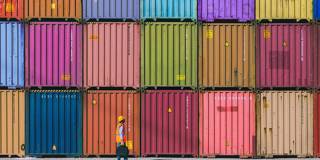Although much of the globalization debate focuses on the uneven impact of open trade, three other inherent anti-globalization biases are at work in many societies. These often contribute to the emergence of misguided public policies that benefit neither employers nor workers.
NEW YORK – Opponents of globalization constantly point to the uneven impact of open trade. Although trade liberalization can make the overall economic pie bigger, not everyone gets a larger slice, and many may receive a much smaller piece than before because of competition from foreign-made products. Such concerns help to explain why many blue-collar American workers voted for Donald Trump in the 2016 US presidential election, and why French farmers and workers often take part in anti-globalization demonstrations.

NEW YORK – Opponents of globalization constantly point to the uneven impact of open trade. Although trade liberalization can make the overall economic pie bigger, not everyone gets a larger slice, and many may receive a much smaller piece than before because of competition from foreign-made products. Such concerns help to explain why many blue-collar American workers voted for Donald Trump in the 2016 US presidential election, and why French farmers and workers often take part in anti-globalization demonstrations.